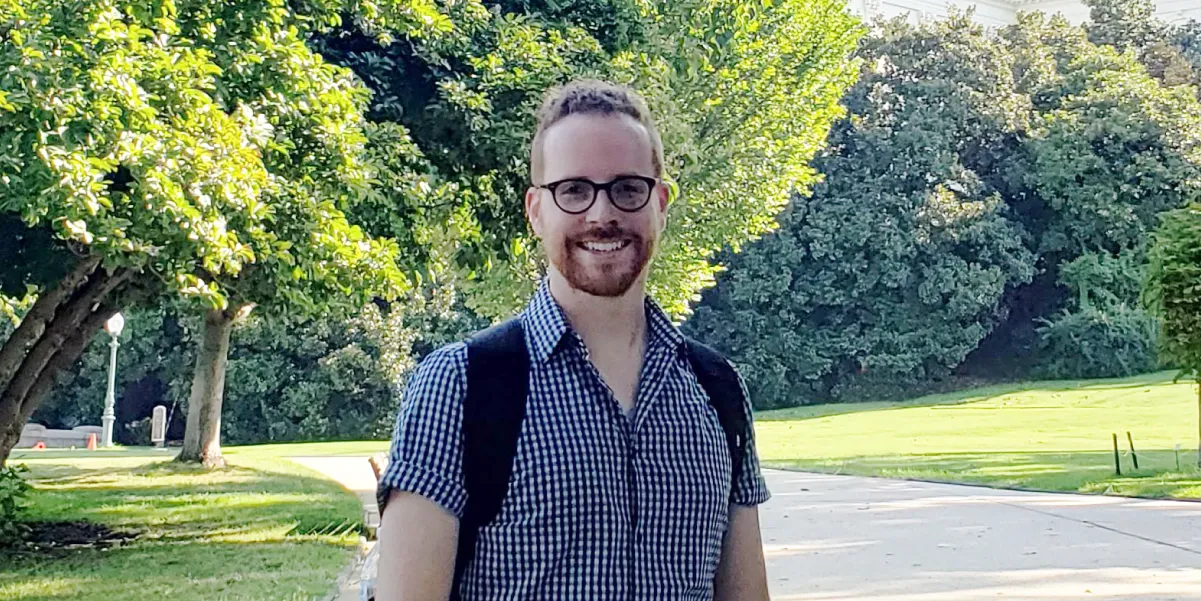
The U.S. Department of Energy selected Michael Stewart, science teacher at Unity Reed High School, as an Albert Einstein Educator Fellow. Each year, K-12 science, technology, engineering, and mathematics (STEM) teachers are selected from across the United States to spend 11 months serving in a federal agency or U.S. Congressional office in Washington, D.C. The program provides a unique opportunity for accomplished educators to apply their extensive classroom knowledge and experiences to inform federal STEM education efforts.
Stewart emphasizes that his experience as a teacher has prepared him to maximize upon his abilities for success during his fellowship. In his own words, he explains, “The reasons students learn anything are very dynamic... so much has to go right for students to succeed. That said, many students succeed simply because they see that you believe in them... and learn that success is not always perfect mastery of everything.”
Stewart is endorsed and has taught several science subjects throughout the course of his career, including general, Advanced Placement (AP), and International Baccalaureate (IB) physics, chemistry, earth science, and biology courses, demonstrating his extensive knowledge across several scientific disciplines. He refers to his flexibility in both subject matter and difficulty level as a contributor to his growth as an educator, strengthening his interpersonal skills and enriching his interactions with students.
During his year-long fellowship, Stewart will have several responsibilities, such as assisting in conducting research, analyzing findings, drafting White Papers, and more. He will be sponsored by the National Science Board Office (NSBO), an organization that supports the National Science Board and National Science Foundation (NSF). Stewart is passionate about NSF, as they have a central role in science for the U.S. government.
“NSF heavily influences and steers what scientific actions occur year-to-year; I wanted to see behind the proverbial curtain to better understand this process,” Stewart explains. “Being placed at NSBO means I can wield valuable influence in promoting, improving, and addressing the challenges surrounding K-12 STEM-access to under-represented groups.” His passion for working with and supporting minority students in advanced science courses is a contributing factor to both his career and his application to the fellowship.
From Stewart’s first-hand perspective, "Science and engineering provide real opportunities to lift students and their communities out of poverty, strengthen our economies at every scale, and diversify the field of ideas we will need to resolve our future challenges.”
He is looking forward to bringing his perspective, experiences, and expertise to NSBO and NSF, “I hope to build something that is not just fashionable but lasts and provides real value to our public schools, teachers, students, and their communities.”